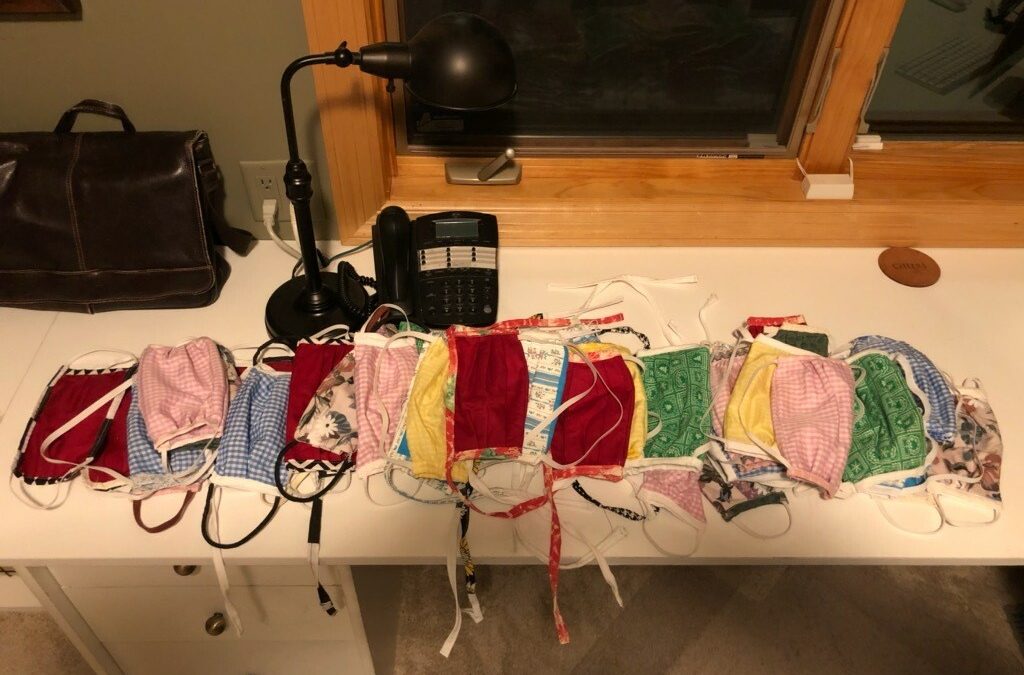
by Flagship Staff | May 5, 2020 | Blog

Below are links to updates on legislation, regulation and guidance on both the federal and state levels in response to COVID-19
Congress
- Senate Majority Leader Mitch McConnell (R-KY) issued a statement that the Senate will reconvene on May 4 as previously planned, will focus its efforts on responding to the coronavirus pandemic and will “modify routines in ways that are smart and safe.”
- After speaking with the House physician, Majority Leader Steny Hoyer (D-MD) told reporters the chamber will no longer reconvene on May 4 amid rising cases of the coronavirus in the District.
- Senate Majority Leader Mitch McConnell (R-KY) and House Minority Leader Kevin McCarthy (R-CA) issued a joint statement, warning they will oppose any future coronavirus relief bill if it fails to include liability protections for employers.
- House Speaker Nancy Pelosi (D-CA) told reporters that House Democrats will call for the inclusion of nearly $1 trillion in the next coronavirus aid package for the hardest-hit states and local governments.
- Senators Tammy Baldwin (D-WI), Chris Murphy (D-CT) and Chuck Schumer (D-NY) introduced legislation that lays out a framework for an effective COVID-19 response by federalizing and adding critical oversight and transparency to the supply chain for critical medical supplies and equipment.
- Senator Ben Cardin (D-MD) is working to protect symptomatic patients who test negative for COVID-19 from sky-high medical bills.
- Senator Elizabeth Warren (D-MA) and Representative Jan Schakowsky (D-IL) introduced the COVID-19 Emergency Manufacturing Act to publicly manufacture personal protective equipment, prescription drugs and other medical supplies necessary to combat the pandemic.
- Senators David Perdue (R-GA), Dick Durbin (D-IL), Todd Young (R-IN) and Chris Coons (D-DE) introduced a bipartisan bill addressing the shortage of doctors and nurses.
- Senator Kamala Harris (D-CA) introduced legislation to establish a task force to combat racial and ethnic disparities amid the pandemic.
- Representatives Diana DeGette (D-CO) and Fred Upton (R-MI) released the concept paper for their bipartisan “Cures 2.0.” The 12-page report unveils high-level areas of focus for Cures 2.0, which will look to modernize the delivery of healthcare in the wake of the pandemic.
- Representatives Linda Sánchez (D-CA) and Tony Cárdenas (D-CA) introduced the Stronger Medicaid Response to the COVID–19 Pandemic Act.
- Representatives Annie Kuster (D-NH) and John Katko (R-NY) introduced bipartisan legislation to support smaller organizations on frontlines of opioid crisis as the COVID-19 pandemic continues.
- Representative Paul Tonko (D-NY) introduced legislation that would fund research to study the impact the COVID-19 pandemic has on the mental health of Americans, and more specifically healthcare providers.
- Representative “Chuy” García (D-IL) and the Congressional Tri-Caucus introduced a bill to end health disparities in the U.S.
- Representative Stephen Lynch (D-MA) introduced a bill to enhance transparency of supplies in the Strategic National Stockpile.
- Representatives Kim Schrier (D-WA) and Phil Roe (R-TN) introduced a bipartisan bill to increase telehealth opportunities during pandemic.
- Representative Anthony Brown (D-MD) and Senator Elizabeth Warren (D-MA) introduced the Pandemic Response and Interstate Cost Equity Act of 2020 to create a federal price-controlling program on critical COVID-19 equipment to ensure lower prices and guarantee supplies are directed to where they are needed most.
- Thirty House Democrats, led by Representatives Pramila Jayapal (D-WA) and Joe Kennedy (D-MA), introduced a bill to extend Medicare coverage to Americans who lose their health insurance because of the pandemic and its economic fallout.
- Representative Bonnie Watson Coleman (D-NJ) introduced a bill to require hazard pay for frontline workers during the pandemic.
Administration
- The Trump Administration, along with the CDC and the FDA, released an Eight-Part Testing Plan and a Blueprint for Testing Plans and Rapid Response Programs.
- The White House released a fact sheet titled “President Donald J. Trump Remains Committed to Caring for Our Nation’s Seniors During the Coronavirus Pandemic and Beyond.”
- The Department of Labor released guidance recognizing that the COVID-19 outbreak may temporarily impede efforts to comply with various requirements and deadlines under ERISA.
- The Departments of Labor and Treasury released an emergency final regulation regarding the COBRA-election period during the dates of the COVID-19 national emergency.
- The Paycheck Protection Program relaunched with the additional $320 billion investment, and the Small Business Administration and the Treasury Department gave small-business lenders a dedicated time slot of eight hours last Wednesday to submit applications.
- The Small Business Administration released an interim final rule on disbursements related to the PPP.
- The SBA, in consultation with the Department of the Treasury, also released an updated version of the Paycheck Protection Program Loans FAQs, which added guidance regarding operation date of businesses (Question 38) and review of individual PPP loan files (Question 39).
- The IRS issued a notice prohibiting small businesses that receive loan forgiveness through the PPP from tax deductions that would otherwise be deductible.
- The IRS also announced enhancements to the “Get My Payment” tool to deliver a more streamline interface for users.
- CMS issued another round of sweeping regulatory waivers and rule changes to deliver expanded care to the nation’s seniors and provide flexibility to the healthcare system as America reopens.
- HHS, through the Health Resources and Services Administration, launched a COVID-19 Uninsured Program Portal, allowing healthcare providers that have conducted COVID-19 testing or provided treatment for uninsured COVID-19 individuals on or after February 4 to submit claims for reimbursement.
- HHS also began the distribution of an additional $20 billion of the $50 billion general distribution to Medicare facilities and providers impacted by COVID-19, augmenting the $30 billion that was allocated earlier this month.
- The Department of Labor released new model notice forms for employers looking to comply with COBRA’s notice requirements.
States
- Track where all 50 states stand on reopening here.
- Track the spread of the coronavirus in the United States.

by Flagship Staff | Apr 27, 2020 | Uncategorized
Flagship Insurance Services is partnering with O’Brien’s Public House to sponsor an online Facebook Live game of Bingo! Request up to 5 free virtual Bingo card codes per person HERE .
You will be able to play your card(s) virtually or print & play. Fun prizes and more will be given away to winners. Tune in for prize details.
Once you have your cards, tune into @O’BriensPublicHouse on Facebook Live from 2 to 4pm on Saturday, May 2nd!


by Flagship Staff | Apr 27, 2020 | Uncategorized
Flagship Insurance Services is doing our part to help the community! We have been collecting masks and donating them to St. Francis Hospital. Our hope is to help keep our medical staff safe during this pandemic! We are honored and grateful for all of their sacrifices and hard work! – masks pictured made by Sherrye Kuchenbecker.







